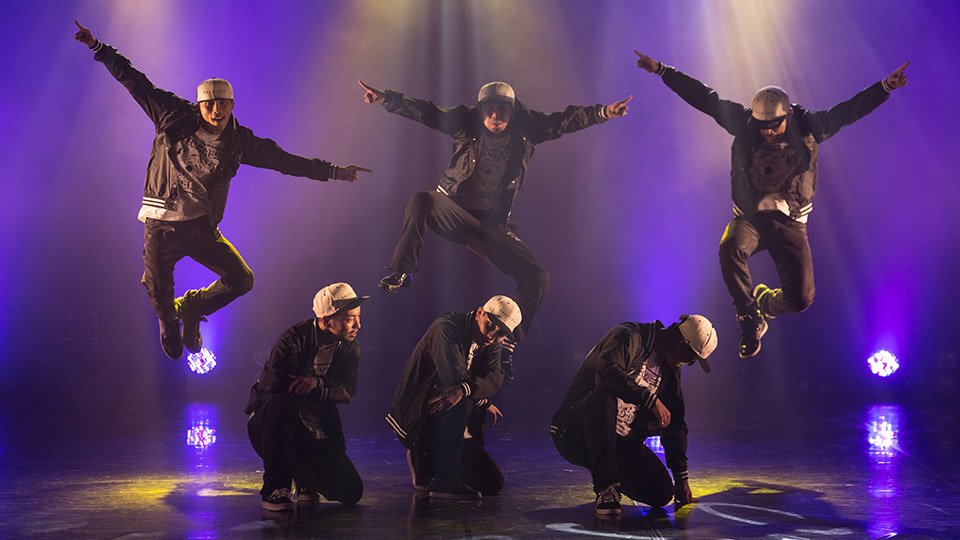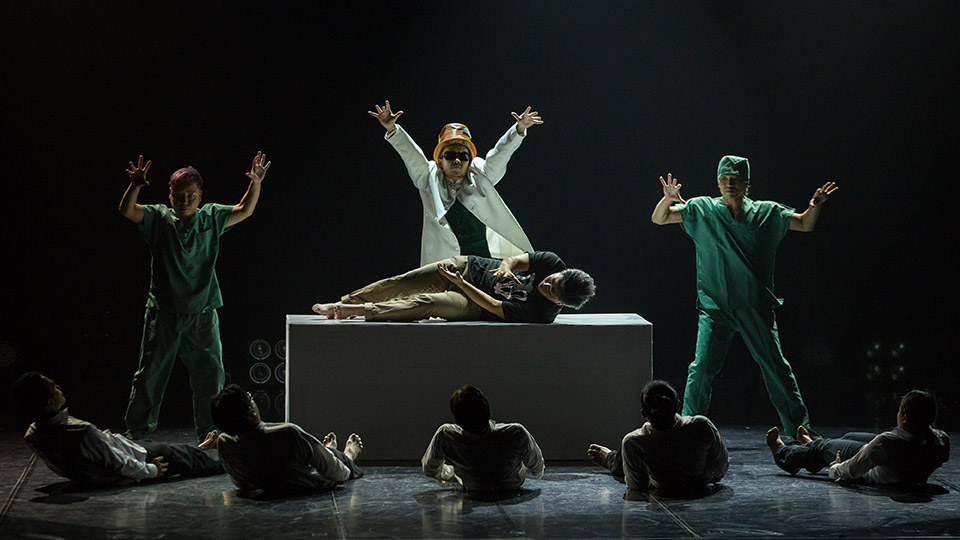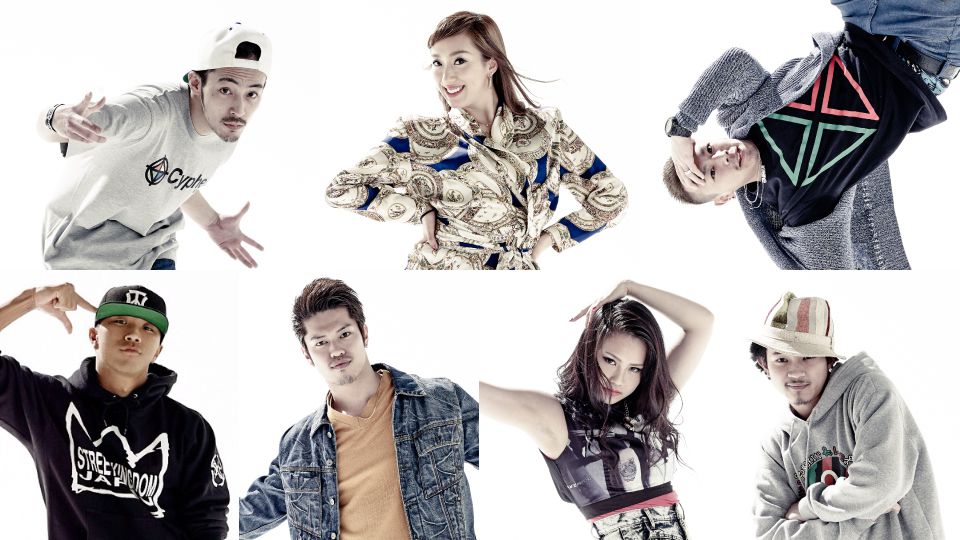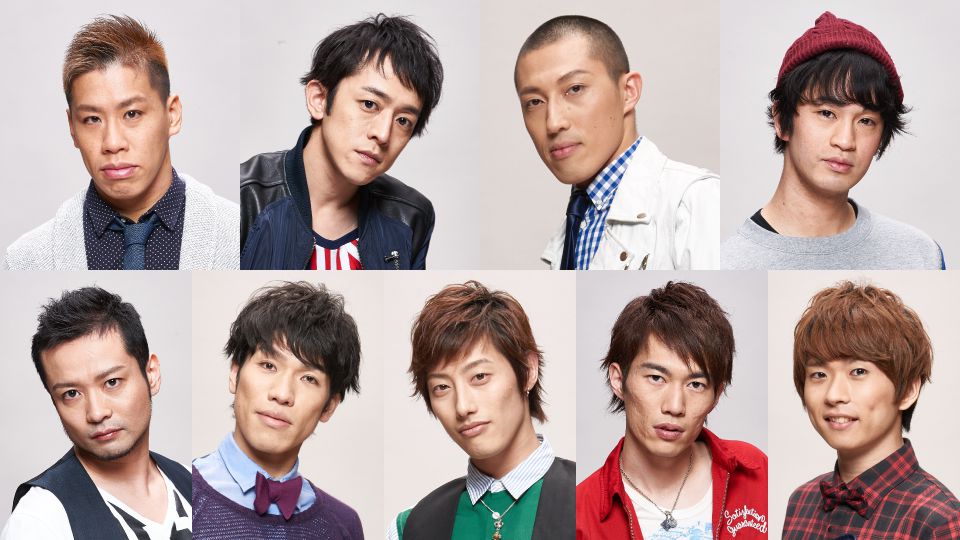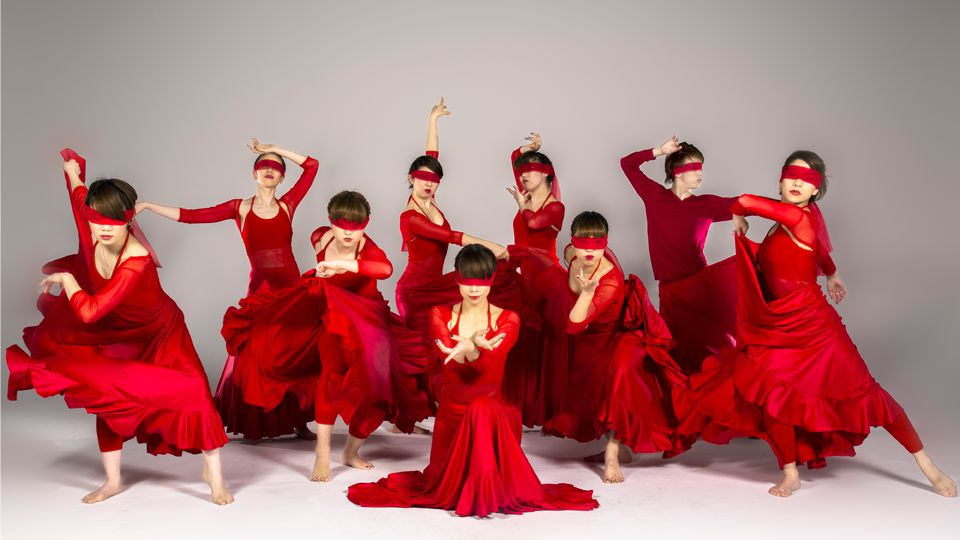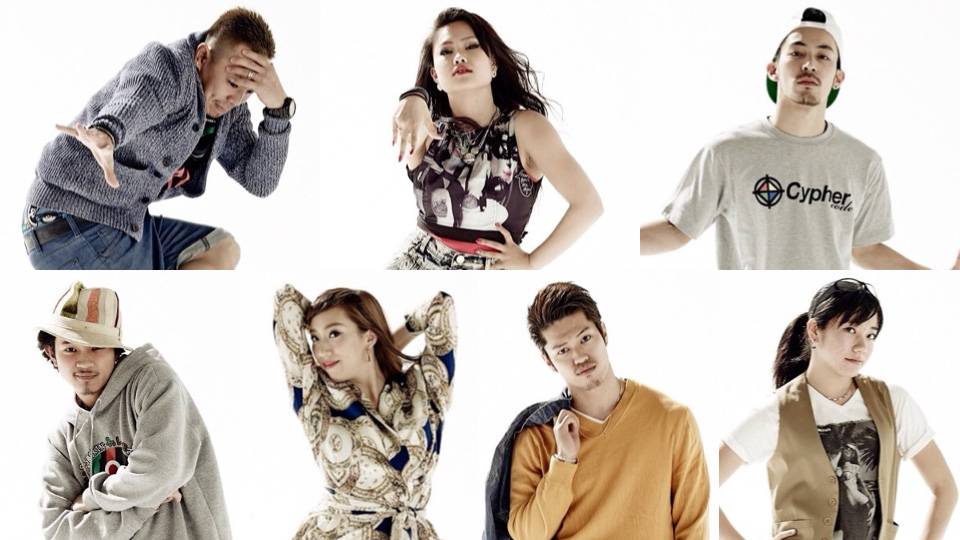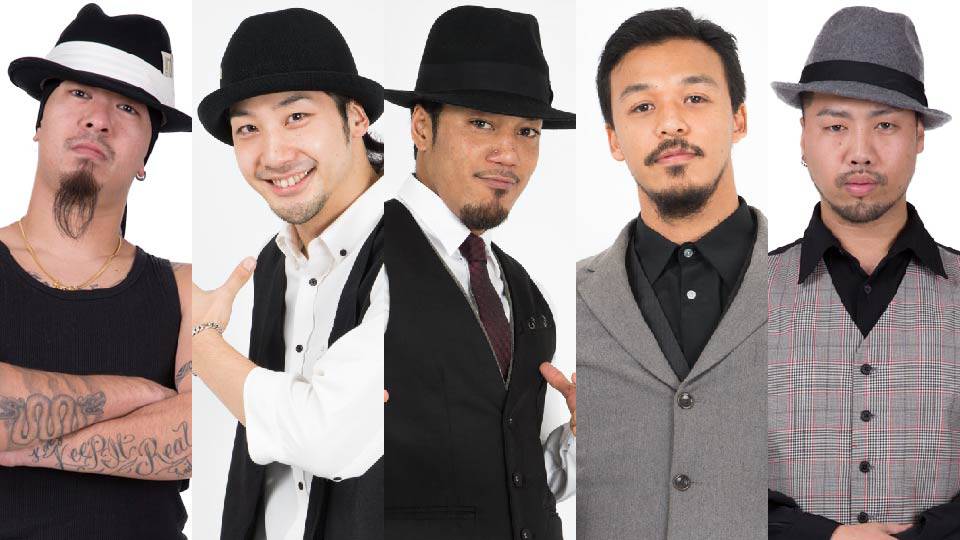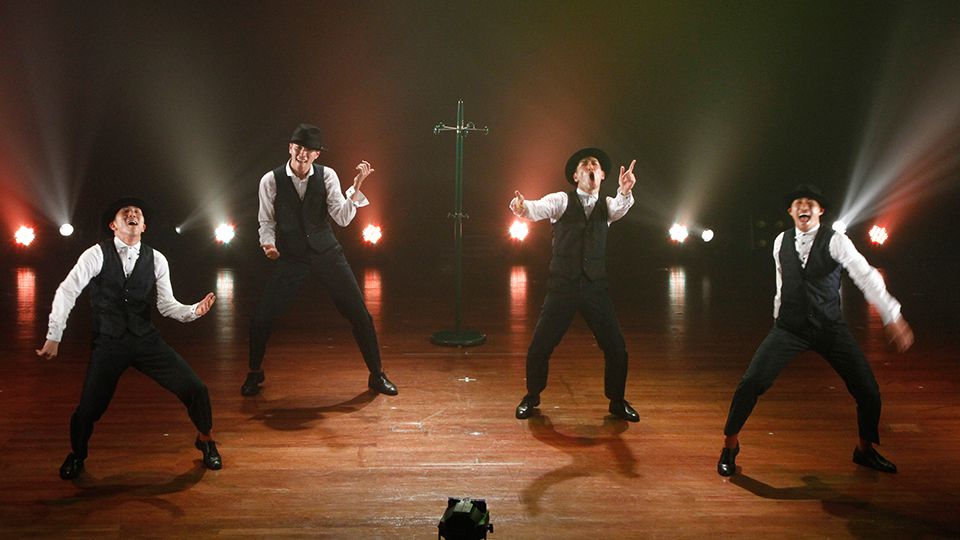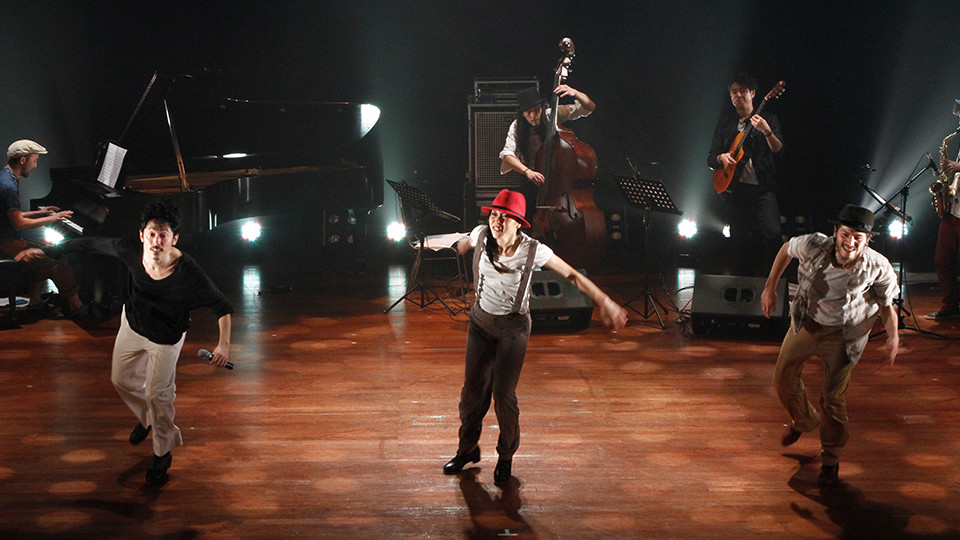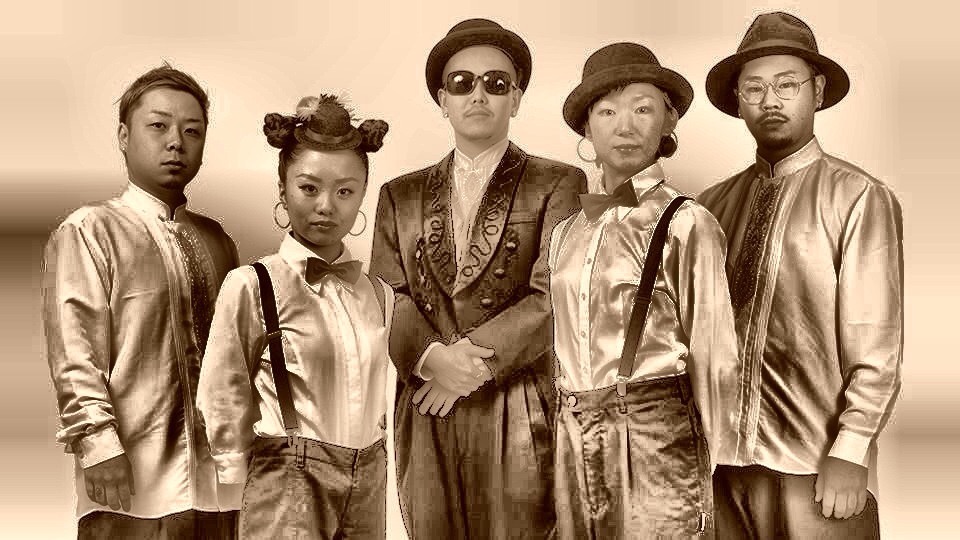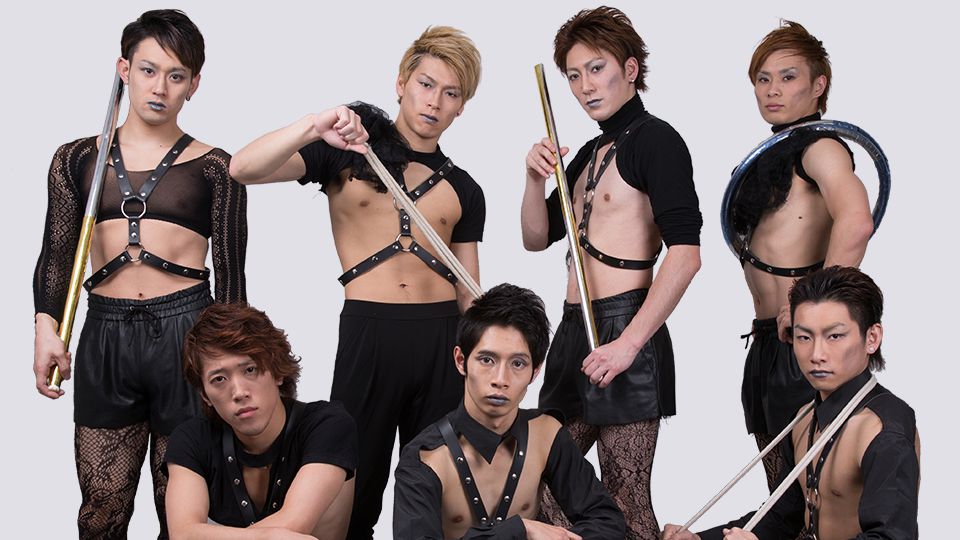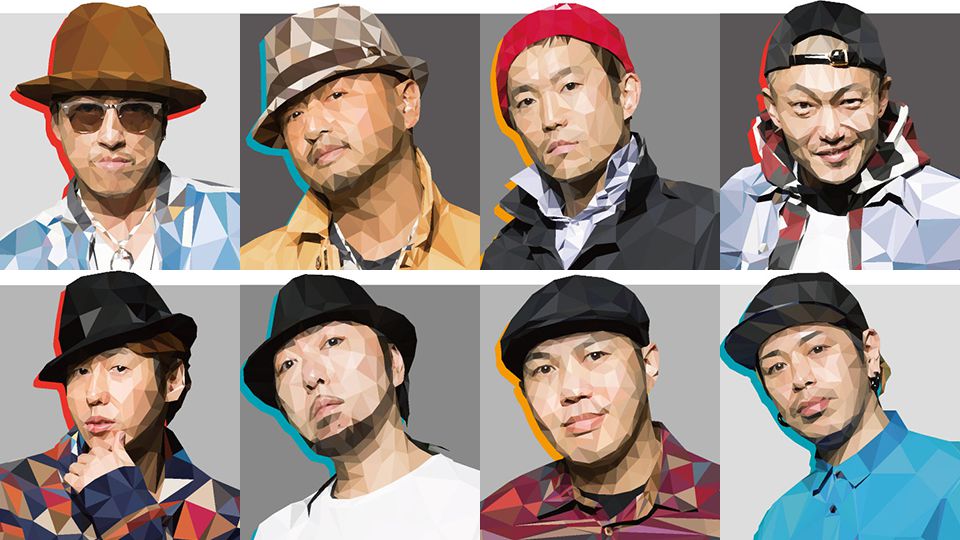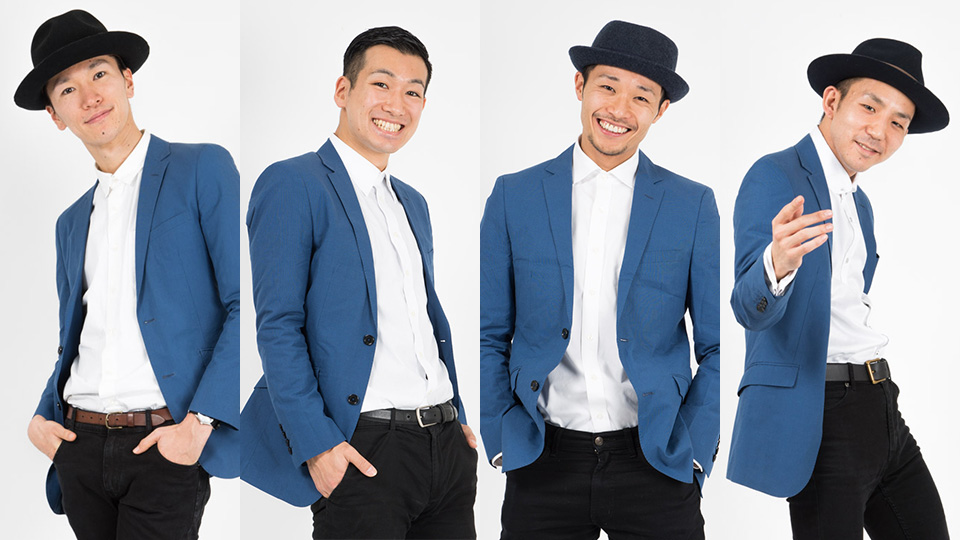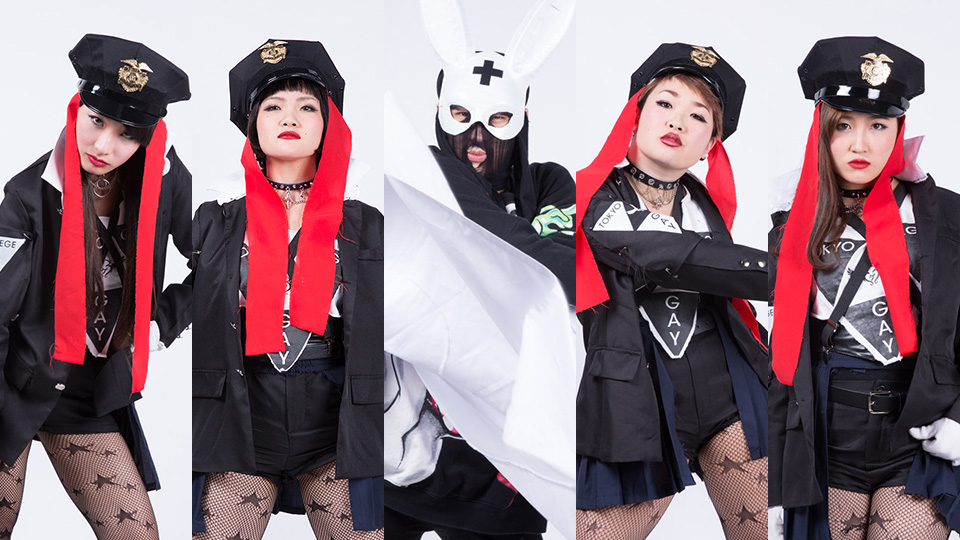
DANCE DANCE ASIA – Kuala Lumpur, Malaysia
Post-Event Interview
TimeMachine / Delivering a message for the future, regardless of national borders
Like a great movie, TimeMachine’s performance made a dramatic and lingering impact on the audience. Even after arriving in Malaysia, they spent every available moment making their work the best it could possibly be. In this post-event interview, leader Koutei Sennin spoke in depth about how he views the potential, and the future, of street dance.

What was it like putting this most recent piece together?
Koutei Sennin : I feel like in today’s society, speed is everything. Making decisions fast, I mean. Personally, I may be kind of lacking in this area, because it’s so important to me to do things thoroughly and do them right, at least to my own satisfaction.
On this tour, we made a lot of requests, and got a lot of time to do what we wanted to do. What people think of the results is their own opinion, but we kept at it until we were satisfied, and we were really happy with how things came out. Of course there are still wrinkles to be ironed out, but we got really positive feedback from all kinds of people, and I’m really glad we were able to do this project thanks to a lot of people’s help. And I have to say that we got a more real, more direct reaction than we would have in Japan.
I actually went to Malaysia for the first time recently, but I hadn’t had a chance to interact with people. This time we got to hang out with local dancers, and that was a really meaningful experience.

How do you see the potential of street dance?
Koutei Sennin : Well, it’s “the potential of street dance” that draws in the people that actually do it, and for them the most important thing is to enjoy it, to have fun doing it.
Besides street dance, I watch a lot of other kinds of dance where people use the body as a medium for expression, but I believe street dance has far and away the most potential to grab audiences’ hearts and minds.
Unfortunately, though, to use a cooking metaphor, a lot of times fantastic ingredients are coming together, but the recipe is missing that terrific spice or that special utensils that can really make it take off. I think this has to do with the environment street dancers are in, as well.
I mean, a lot of people who do street dance might have a feeling like, “We don’t need to spice it up with zesty flavors and serve it up beautifully, the ‘raw ingredients’ are tasty enough by themselves. That’s all we need.” But you end up with great dance without good presentation. There are diamonds rolling around on the ground, but nobody is picking them up. That’s why I say to people, “You’ve got to cut and polish that diamond,” “You’ve got to store it in a treasure chest where it belongs.”
The moment that treasure chest is opened, there are people who will recognize the value of that diamond and wrap it up, price it, and present it to the world. But there are diamonds out there that don’t want to go into that treasure chest. There’s an intrinsic value just in being a diamond, and they’re certainly making enough effort to achieve it. But for some reason there aren’t many people around to see it, and some of the ones that do are people who can’t tell a diamond from a cubic zirconia. And some of the diamonds aren’t even aware of their own value. That’s how it seems to me, anyway.


What is your outlook for the future like?
Koutei Sennin : Our group is called TimeMachine, and part of what that means is that 100 years from now when we’re gone, we hope our work lives on in some way, not just in Japan but all over the world. There is a message in the work that doesn’t change, even if the people delivering it do, and we want to leave this work as a legacy regardless of nationalities or national borders.
One of my dreams is to win a Grammy. In one of the big four categories, where no Japanese artist has ever won one before. I believe it’s possible, if we realize street dance’s full potential, and it’ll actually become realistic in three years or so.
That’s if we can bring together the power of music, which is a fundamental element of street dance, and our visual sense, plus the originality that only we possess. If we can fuse them all, we can create something that people will appreciate everywhere, anywhere in the world. Then the next mission is to make a movie that asks the big questions: Why are we alive? Why are we here? What do we really want? With that we could win an Academy Award. A Grammy, an Oscar: that’s our goal, for now at least. That’s our dream, and we’ll make it a reality.
Posted – 2015.08.12
This post is also available in: Japanese
















